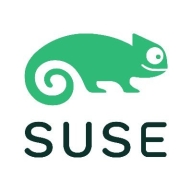


SUSE NeuVector and Microsoft Defender for Cloud compete in the cloud security market. Microsoft Defender for Cloud seems to have the upper hand with its extensive features and Azure integration, making it a valuable investment.
Features: SUSE NeuVector offers container security with runtime vulnerability management, network visibility, and run-time security. Microsoft Defender for Cloud provides workload protection, threat intelligence, and seamless Azure integration. Both offer significant features, but Microsoft Defender's integration with Azure stands out.
Room for Improvement: SUSE NeuVector could enhance feature diversity and expand integration capabilities. Documentation and user-interface advancements would also be beneficial. Microsoft Defender for Cloud could improve ease of use for users less familiar with Azure, optimize setup processes, and expand support for non-Microsoft environments.
Ease of Deployment and Customer Service: SUSE NeuVector is praised for its straightforward installation process and reliable support. Microsoft Defender for Cloud offers streamlined deployment and native cloud integration, potentially requiring more setup time due to its extensive features.
Pricing and ROI: SUSE NeuVector is competitively priced and emphasizes efficient threat management for substantial ROI. Microsoft Defender for Cloud might involve higher initial costs, but its comprehensive security and system integration provide favorable ROI within Microsoft's ecosystem.
| Product | Market Share (%) |
|---|---|
| SentinelOne Singularity Cloud Security | 3.1% |
| Microsoft Defender for Cloud | 6.6% |
| SUSE NeuVector | 2.2% |
| Other | 88.1% |



| Company Size | Count |
|---|---|
| Small Business | 46 |
| Midsize Enterprise | 20 |
| Large Enterprise | 53 |
| Company Size | Count |
|---|---|
| Small Business | 26 |
| Midsize Enterprise | 7 |
| Large Enterprise | 45 |
| Company Size | Count |
|---|---|
| Small Business | 5 |
| Midsize Enterprise | 1 |
| Large Enterprise | 2 |
SentinelOne Singularity Cloud Security offers a streamlined approach to cloud security with intuitive operation and strong integration capabilities for heightened threat detection and remediation efficiency.
Singularity Cloud Security stands out for its real-time detection and response, effectively minimizing detection and remediation timelines. Its automated remediation integrates smoothly with third-party tools enhancing operational efficiency. The comprehensive console ensures visibility and support for forensic investigations. Seamless platform integration and robust support for innovation are notable advantages. Areas for development include improved search functionality, affordability, better firewall capabilities for remote users, stable agents, comprehensive reporting, and efficient third-party integrations. Clarity in the interface, responsive support, and real-time alerting need enhancement, with a call for more automation and customization. Better scalability and cost-effective integration without compromising capabilities are desired.
What are SentinelOne Singularity Cloud Security's standout features?SentinelOne Singularity Cloud Security is deployed in industries needing robust cloud security posture management, endpoint protection, and threat hunting. Utilized frequently across AWS and Azure, it assists in monitoring, threat detection, and maintaining compliance in diverse environments while providing real-time alerts and recommendations for proactive threat management.
Microsoft Defender for Cloud is a comprehensive security solution that provides advanced threat protection for cloud workloads. It offers real-time visibility into the security posture of cloud environments, enabling organizations to quickly identify and respond to potential threats. With its advanced machine learning capabilities, Microsoft Defender for Cloud can detect and block sophisticated attacks, including zero-day exploits and fileless malware.
The solution also provides automated remediation capabilities, allowing security teams to quickly and easily respond to security incidents. With Microsoft Defender for Cloud, organizations can ensure the security and compliance of their cloud workloads, while reducing the burden on their security teams.
SUSE NeuVector is a full lifecycle container security solution that helps your organization secure its container infrastructures, manage Kubernetes security risks, and block threats. The NeuVector continuous container security and compliance platform simplifies data protection from pipeline to production, enforces compliance, and provides complete visibility and automated controls for protection against known and unknown threats. In addition, NeuVector is the only Kubernetes-native container security solution that offers a comprehensive risk profile of known vulnerabilities and also delivers immediate protection from all vulnerabilities.
SUSE NeuVector Features
SUSE NueVector has many valuable key features. Some of the most useful ones include:
SUSE NeuVector Benefits
There are many benefits to implementing NeuVector. Some of the biggest advantages the solution offers include:
Reviews from Real Users
A Platform Solution Architect at a tech services company says, “The solution is feature-rich, easy to set up, and has good support.”
We monitor all Container Security reviews to prevent fraudulent reviews and keep review quality high. We do not post reviews by company employees or direct competitors. We validate each review for authenticity via cross-reference with LinkedIn, and personal follow-up with the reviewer when necessary.